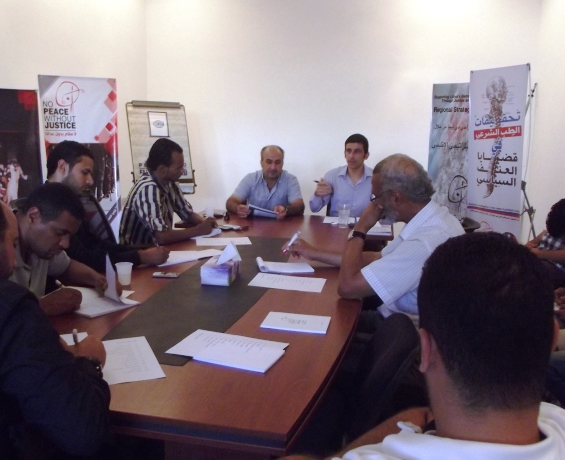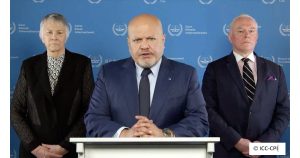Tripoli, Libya, 1 October 2013
On 1 October 2013, NPWJ held a workshop with Libyan civil society organisations (CSOs) designed to build and reinforce the capacity of Libyan civil society organisations to play their role in incorporating accountability, human rights and rule of law in their country’s transition to democracy. Participants included representatives from The Right Way for Human Rights, Martyr Ahmed Krekshi for Orphans Society, Libyan House for Films, Arab Spring Organisation for Human Rights and the Mercy Organisation for Humanitarian Work. These organisations are based in Tripoli, Sirte and Sebha.
The aim of the workshop was to build their technical capacity of participating organisations to develop project ideas, structure proposals and identify donor requirements. It is important that these organisations develop the ability to identify problems, propose practical solutions and design manageable steps to achieve the intended result to ensure the successful implementation of their projects, as well as attract funding.
The workshop built on the participants previous experience of designing interventions and raising funds, focusing on how to identify the problem to be solved, who the beneficiaries should be and how to come up with clear, achievable objectives. This workshop was part of NPWJ’s capacity building programme with Libyan CSOs and activists which aims to build their knowledge and capacity in addressing transitional justice and to work on accountability processes. NPWJ is also working closely with donors and local organisations in Libya to create a platform through which they can communicate with one another.
NPWJ in Libya
NPWJ has been working on the Libyan transition since early 2011, in the framework of its project to support Libya’s democratic transition through justice and accountability. As the country embarks on legislative reforms, the Libyan authorities can break with the legacy of impunity and abuses that typified Gaddafi’s rule with a new respect for the rule of law and a commitment to restoring justice and dignity to victims. Doing so requires not only the investigation and prosecution of the crimes and violence perpetrated during the revolution, but also efforts to confront a history of oppression and human rights abuses that dates back decades under the rule of the former regime.
- Visit the special page on No Peace Without Justice’s ongoing transitional justice program in Libya
- Watch the Video: “Transitional Justice Perspectives in Libya: April 2012”, Zughaid Production in association with No Peace Without Justice (Arabic)
- Brochure on Transitional Justice and Libya (Arabic)
For further information on the activities of NPWJ in Libya please contact Stefano Moschini, Libya Program Coordinator, at smoschini@npwj.org or +218917450375.




